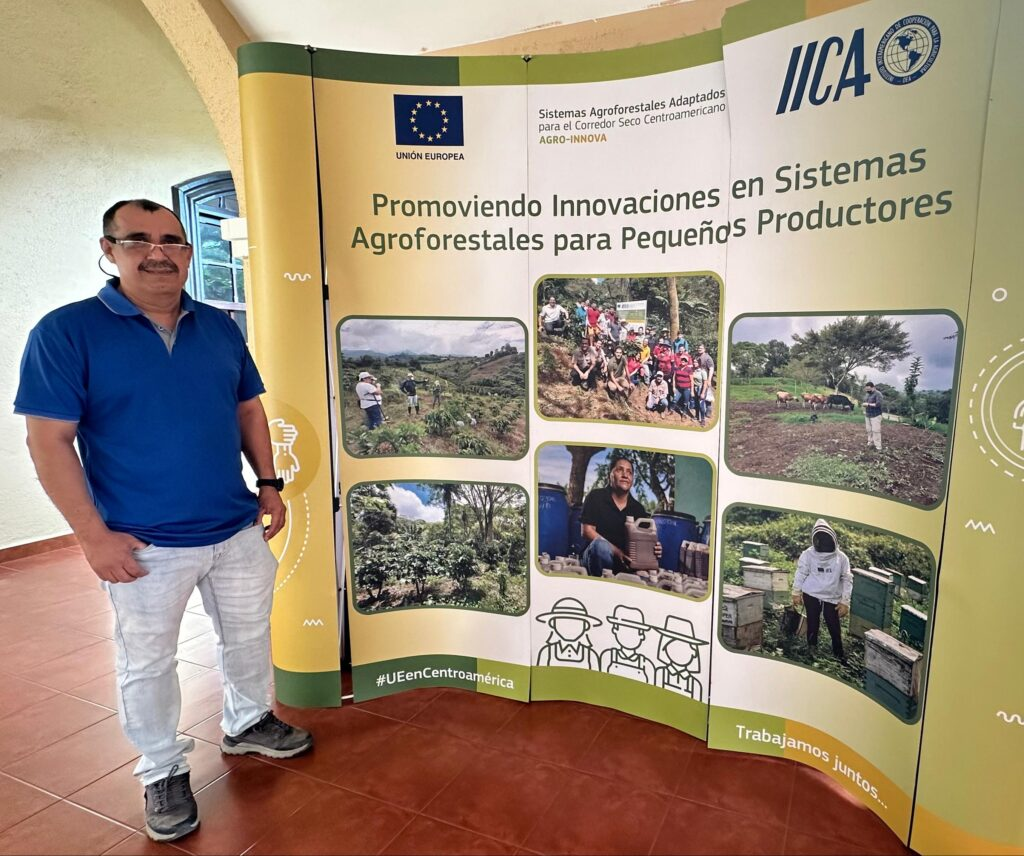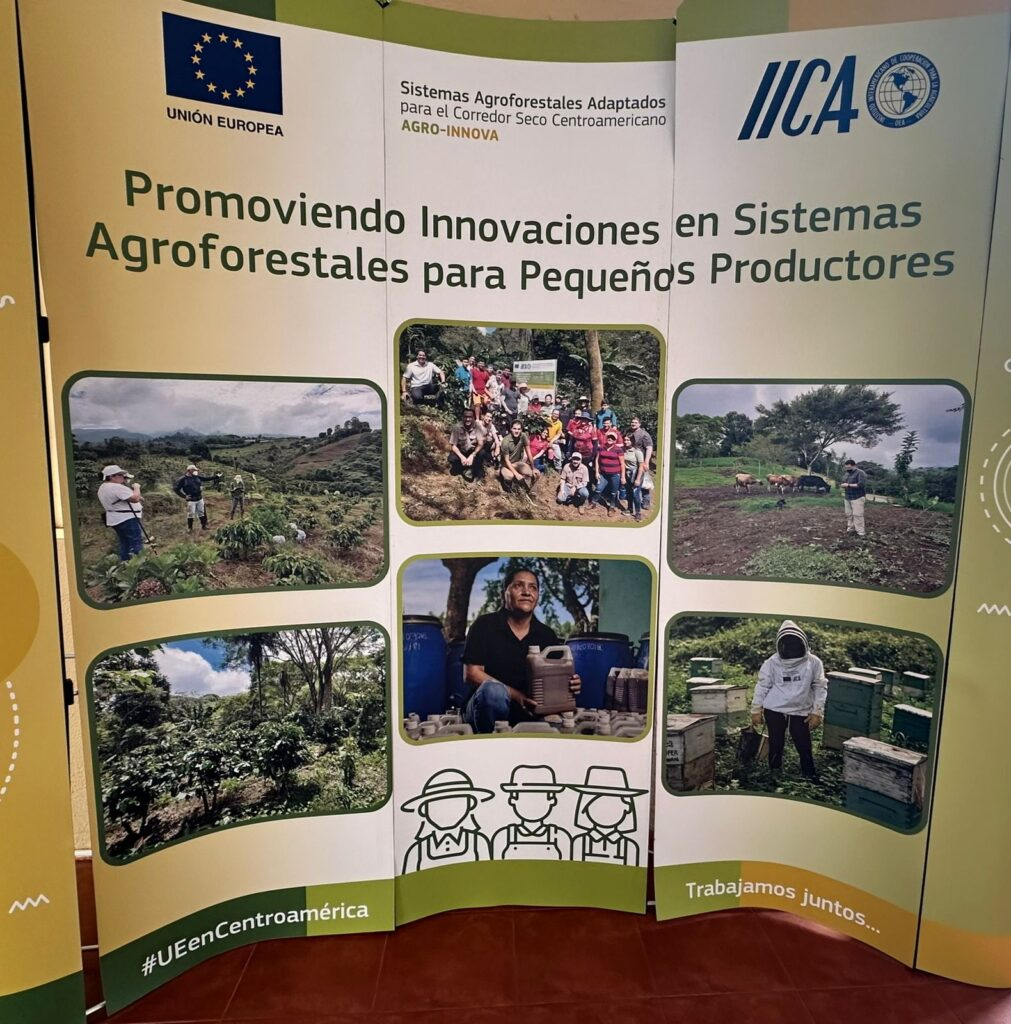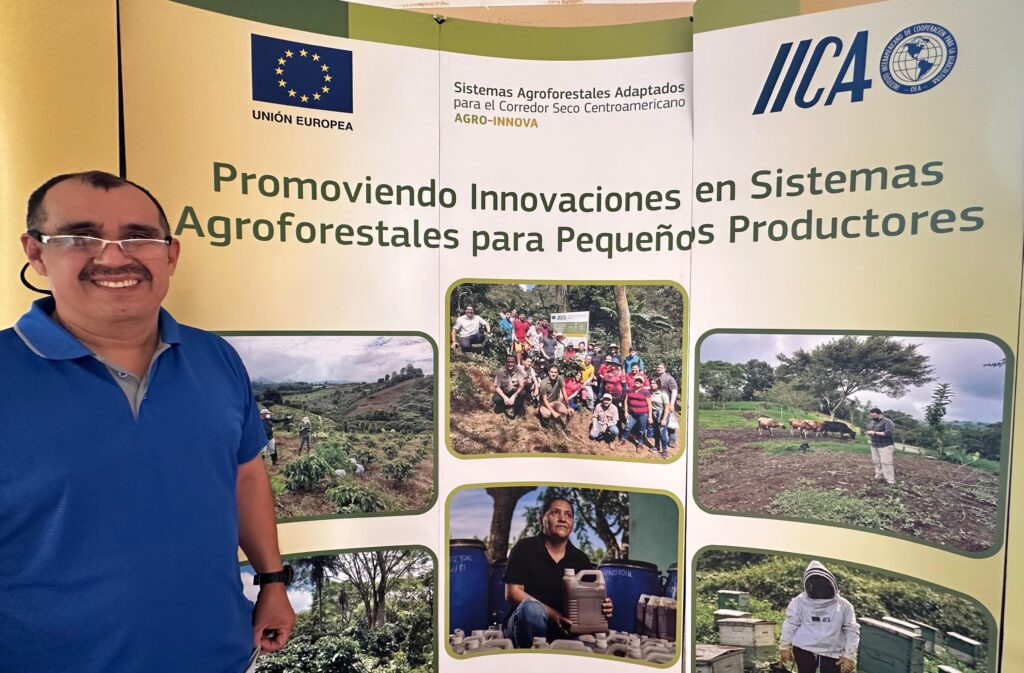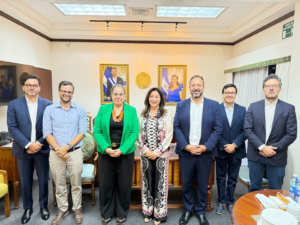
AGRO-INNOVA is implemented by the Instituto Interamericano de Cooperación para la Agricultura (IICA), with funding from the European Union (EU). The collaboration extends to 21 national partners, both public and private, in six Central American countries: Guatemala, El Salvador, Honduras, Nicaragua, Costa Rica and Panama. This collaborative approach has been key to the project’s success.
In El Salvador, José Cruz Pineda, CENTA’s Agency Coordinator in Metapán, has been instrumental in implementing AGRO-INNOVA in several locations, including Metapán, Candelaria de la Frontera, Texistepeque and Chalchuapa. His work has allowed the project to reach more farmers, benefiting a large number of families who depend on agriculture for their livelihoods.

One of the most significant impacts of the project has been crop diversification. Before AGRO-INNOVA, many farmers focused solely on maize, which limited their income and exposed them to risks associated with climate change. Now, thanks to the knowledge acquired, farmers have begun to grow vegetables and fruits such as pineapple and lemons, as well as entering into aquaculture with the cultivation of tilapia.
One of AGRO-INNOVA’s most outstanding achievements is the average 60% increase in farmers’ profits. This increase has been achieved through crop diversification and the adoption of new agricultural practices that optimize the use of resources and improve production. Farmers have not only expanded their product offerings, but have also found new markets, which has allowed them to increase their income and improve their quality of life. This economic impact not only benefits families, but also contributes to the sustainable development of the communities in the Dry Corridor.
The main objective of the AGRO-INNOVA project is to strengthen the capacities and knowledge management of 3,000 small producers and 12 organizations in the Central American Dry Corridor. This effort is vital to improve the resilience of communities facing significant challenges in terms of food security and agricultural sustainability.

The project also focuses on the promotion and dissemination of technologies and best practices in Multilayer Agroforestry Systems. These innovations are essential for agroforestry management, soil conservation and integrated water resource management, which contribute to environmental sustainability and improved agricultural production.
AGRO-INNOVA is implemented hand in hand with producers and technicians, ensuring that knowledge is transferred effectively. This strategy encourages the adoption of innovative practices that not only benefit farmers, but also strengthen the capacity of communities to face the challenges of the future.







